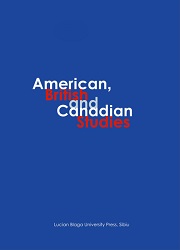Self-Mention in Science Communication Associated with COVID-19 Research: A Comparison of Computer-Mediated Communicative Practices in the United Kingdom and the United States of America
Self-Mention in Science Communication Associated with COVID-19 Research: A Comparison of Computer-Mediated Communicative Practices in the United Kingdom and the United States of America
Author(s): Oleksandr KapranovSubject(s): Communication studies, Higher Education , Scientific Life, ICT Information and Communications Technologies
Published by: Editura Universitatii LUCIAN BLAGA din Sibiu
Keywords: academic discourse; authorial presence; computer-mediated communication; corpus-assisted research; COVID-19-related discourse; pandemics communication; self-mention; science communication;
Summary/Abstract: The article introduces and discusses a corpus-assisted study that sets out to identify and analyse how self-mention is employed in science communication associated with COVID-19 research disseminated to the general public by leading universities in the United Kingdom (the UK) and the United States of America (the USA). The corpus of the study is comprised of computer-mediated communication related to the COVID19 pandemic on the official websites of Johns Hopkins University (the USA) and University College London (the UK). The corpus was examined quantitatively for the presence of self-mentions, such as I, my, me, mine, myself, and we, our, ours, ourselves, and us. The results of the quantitative analysis indicated that computer-mediated communicative practices associated with COVID-19 discourse and communication by these scientific institutions exhibit similarities in terms of the use of self-mentions. However, in contrast to COVID-19-related discourse communicated by Johns Hopkins University, the self-mention I and its forms were used more liberally in COVID-19-related discourse and communication disseminated by University College London. These findings are further discussed in the article from the vantage point of the current Anglo-Saxon tradition of academic writing in English.
Journal: American, British and Canadian Studies
- Issue Year: 2021
- Issue No: 36
- Page Range: 131-153
- Page Count: 23
- Language: English
- Content File-PDF

